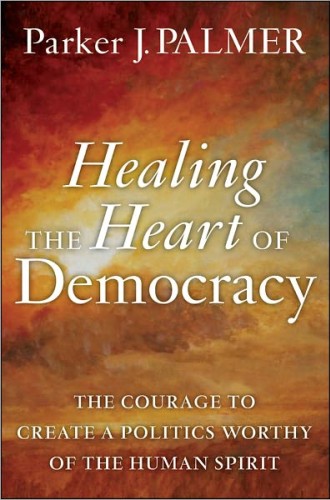Healing the Heart of Democracy, by Parker J. Palmer
The title of Parker Palmer's book suggests that when he uses the words democracy and politics he is concerned with something much more than everyday politics in a society that is formally democratic. The words healing and human spirit suggest that we will be getting a meditation on the deep meaning of democracy and politics, not a study of the nuts and bolts of political practice.
Palmer's project stands in a tradition that goes back at least as far as Plato, who thought that the individual soul and the soul of society were mutually related, each strengthening or undermining the other. Palmer does not refer to Plato, but he does refer throughout the book to two men who carried out Plato's tradition: Alexis de Tocqueville and Abraham Lincoln. Both were sensitive to the kind of person who makes democracy possible, the kind of person that democracy produces and the many problems that this relation gives rise to.
Heart, as Palmer uses it, is "a word that reaches far beyond our feelings." It includes the mind but "goes deeper than the mind alone can take us." His is a biblical use of the word, closely related to the idea of conscience, though in linking the emotional with the intellectual and both with the ethical, he reaches for a meaning that is deeper and more inclusive than that of any other English word. From the beginning, Palmer's concern with the term heart leads us into another idea that pervades the book: brokenheartedness. Here too the link between person and society is central.





